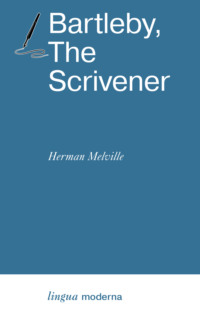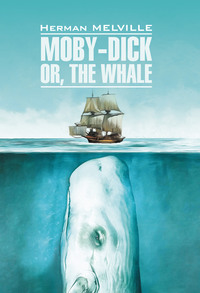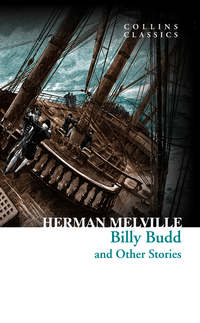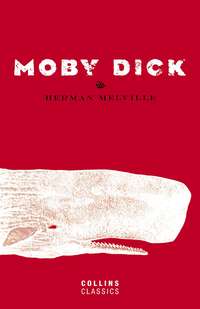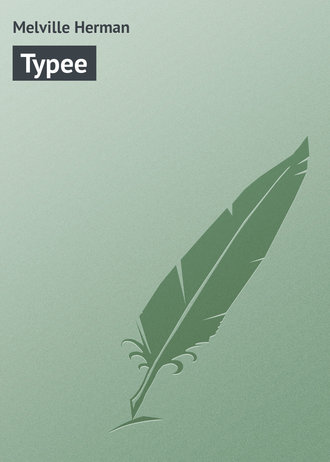
The only consolation afforded me was a choice of patterns: I was at perfect liberty to have my face spanned by three horizontal bars, after the fashion of my serving-man’s; or to have as many oblique stripes slanting across it: or if, like a true courtier, I chose to model my style on that of royalty, I might wear a sort of freemason badge upon my countenance in the shape of a mystic triangle. However, I would have none of these, though the king most earnestly impressed upon my mind that my choice was wholly unrestricted. At last, seeing my unconquerable repugnance, he ceased to importune me.
But not so some other of the savages. Hardly a day passed but I was subjected to their annoying requests, until at last my existence became a burden to me; the pleasures I had previously enjoyed no longer afforded me delight, and all my former desire to escape from the valley now revived with additional force.
A fact which I soon afterwards learned augmented my apprehension. The whole system of tattooing was, I found, connected with their religion; and it was evident, therefore, that they were resolved to make a convert of me.
In the decoration of the chiefs, it seems to be necessary to exercise the most elaborate pencilling; while some of the inferior natives looked as if they had been daubed over indiscriminately with a house-painter’s brush. I remember one fellow who prided himself hugely upon a great oblong patch, placed high upon his back, and who always reminded me of a man with a blister of Spanish flies stuck between his shoulders. Another whom I frequently met had the hollow of his eyes tattooed in two regular squares, and his visual organs being remarkably brilliant, they gleamed forth from out this setting like a couple of diamonds inserted in ebony.
Although convinced that tattooing was a religious observance, still the nature of the connection between it and the superstitious idolatry of the people was a point upon which I could never obtain any information. Like the still more important system of the “Taboo,” it always appeared inexplicable to me.
There is a marked similarity, almost an identity, between the religious institutions of most of the Polynesian islands, and in all exists the mysterious “Taboo,” restricted in its uses to a greater or less extent. So strange and complex in its arrangements is this remarkable system, that I have in several cases met with individuals who, after residing for years among the islands in the Pacific, and acquiring a considerable knowledge of the language, have nevertheless been altogether unable to give any satisfactory account of its operations. Situated as I was in the Typee valley, I perceived every hour the effects of this all-controlling power, without in the least comprehending it. Those effects were, indeed, wide-spread and universal, pervading the most important as well as the minutest transactions of life. The savage, in short, lives in the continual observance of its dictates, which guide and control every action of his being.
For several days after entering the valley I had been saluted at least fifty times in the twenty-four hours with the talismanic word “Taboo”shrieked in my ears, at some gross violation of its provisions, of which I had unconsciously been guilty. The day after our arrival I happened to hand some tobacco to Toby over the head of a native who sat between us. He started up, as if stung by an adder; while the whole company, manifesting an equal degree of horror, simultaneously screamed out “Taboo!” I never again perpetrated a similar piece of ill-manners, which, indeed, was forbidden by the canons of good breeding, as well as by the mandates of the taboo. But it was not always so easy to perceive wherein you had contravened the spirit of this institution. I was many times called to order, if I may use the phrase, when I could not for the life of me conjecture what particular offence I had committed.
One day I was strolling through a secluded portion of the valley, and hearing the musical sound of the cloth-mallet at a little distance, I turned down a path that conducted me in a few moments to a house where there were some half-dozen girls employed in making tappa. This was an operation I had frequently witnessed, and had handled the bark in all the various stages of its preparation. On the present occasion the females were intent upon their occupation, and after looking up and talking gaily to me for a few moments, they resumed their employment. I regarded them for awhile in silence, and then, carelessly picking up a handful of the material that lay around, proceeded unconsciously to pick it apart. While thus engaged, I was suddenly startled by a scream, like that of a whole boarding-school of young ladies just on the point of going into hysterics. Leaping up with the idea of seeing a score of Happar warriors about to perform anew the Sabine atrocity, I found myself confronted by the company of girls, who, having dropped their work, stood before me with starting eyes, swelling bosoms, and fingers pointed in horror towards me.
Thinking that some venomous reptile must be concealed in the bark which I held in my hand, I began cautiously to separate and examine it. Whilst I did so the horrified girls redoubled their shrieks. Their wild cries and frightened motions actually alarmed me, and throwing down the tappa, I was about to rush from the house, when in the same instant their clamours ceased, and one of them, seizing me by the arm, pointed to the broken fibres that had just fallen from my grasp, and screamed in my ears the fatal word “Taboo!”
I subsequently found out that the fabric they were engaged in making was of a peculiar kind, destined to be worn on the heads of the females, and through every stage of its manufacture was guarded by a vigorous taboo, which interdicted the whole masculine gender from even so much as touching it.
Frequently in walking through the groves I observed bread-fruit and cocoa-nut trees, with a wreath of leaves twined in a peculiar fashion about their trunks. This was the mark of the taboo. The trees themselves, their fruit, and even the shadows they cast upon the ground, were consecrated by its presence. In the same way a pipe, which the king had bestowed upon me, was rendered sacred in the eyes of the natives, none of whom could I ever prevail upon to smoke from it. The bowl was encircled by a woven band of grass, somewhat resembling those Turks’ heads occasionally worked in the handles of our whip-stalks.
A similar badge was once braided about my wrist by the royal hand of Mehevi himself, who, as soon as he had concluded the operation, pronounced me “Taboo.” This occurred shortly after Toby’s disappearance; and were it not that from the first moment I had entered the valley the natives had treated me with uniform kindness, I should have supposed that their conduct afterwards was to be ascribed to the fact that I received this sacred investiture.
The capricious operations of the taboo are not its least remarkable feature: to enumerate them all would be impossible. Black hogs – infants to a certain age – women in an interesting situation – young men while the operation of tattooing their faces is going on – and certain parts of the valley during the continuance of a shower – are alike fenced about by the operation of the taboo.
I witnessed a striking instance of its effects in the bay of Tior, my visit to which place occurred a few days before leaving the ship. On that occasion our worthy captain formed one of the party. He was a most insatiable sportsman. Outward bound, and off the pitch of Cape Horn, he used to sit on the taffrail, and keep the steward loading three or four old fowling-pieces, with which he would bring down albatrosses, Cape pigeons, jays, petrels, and divers other marine fowl, who followed chattering in our wake. The sailors were struck aghast at his impiety, and one and all attributed our forty days’ beating about that horrid headland to his sacrilegious slaughter of these inoffensive birds.
At Tior, he evinced the same disregard for the religious prejudices of the islanders as he had previously shown for the superstitions of the sailors. Having heard that there were a considerable number of fowls in the valley – the progeny of some cocks and hens accidentally left there by an English vessel, and which, being strictly tabooed, flew about almost in a wild state – he determined to break through all restraints, and be the death of them. Accordingly, he provided himself with a most formidable-looking gun, and announced his landing on the beach by shooting down a noble cock, that was crowing what proved to be his own funeral dirge on the limb of an adjoining tree. “Taboo,”shrieked the affrighted savages. “Oh, hang your taboo,” says the nautical sportsman; “talk taboo to the marines”; and bang went the piece again, and down came another victim. At this the natives ran scampering through the groves, horror-struck at the enormity of the act.
All that afternoon the rocky sides of the valley rang with successive reports, and the superb plumage of many a beautiful fowl was ruffled by the fatal bullet. Had it not been that the French admiral, with a large party, was then in the glen, I have no doubt that the natives, although their tribe was small and dispirited, would have inflicted summary vengeance upon the man who thus outraged their most sacred institutions; as it was, they contrived to annoy him not a little.
Thirsting with his exertions, the skipper directed his steps to a stream; but the savages, who had followed at a little distance, perceiving his object, rushed towards him and forced him away from its bank – his lips would have polluted it. Wearied at last, he sought to enter a house that he might rest for awhile on the mats; its inmates gathered tumultuously about the door and denied him admittance. He coaxed and blustered by turns, but in vain; the natives were neither to be intimidated nor appeased, and as a final resort he was obliged to call together his boat’s crew, and pull away from what he termed the most infernal place he ever stepped upon.
Lucky was it for him and for us that we were not honoured on our departure by a salute of stones from the hands of the exasperated Tiors. In this way, on the neighbouring island of Ropo, were killed, but a few weeks previously, and for a nearly similar offence, the master and three of the crew of the K – .
I cannot determine, with anything approaching to certainty, what power it is that imposes the taboo. When I consider the slight disparity of condition among the islanders – the very limited and inconsiderable prerogatives of the king and chiefs – and the loose and indefinite functions of the priesthood, most of whom were hardly to be distinguished from the rest of their countrymen, I am wholly at a loss where to look for the authority which regulates this potent institution. It is imposed upon something to-day, and withdrawn to-morrow; while its operations in other cases are perpetual. Sometimes its restrictions only affect a single individual – sometimes a particular family – sometimes a whole tribe; and, in a few instances, they extend not merely over the various clans on a single island, but over all the inhabitants of an entire group. In illustration of this latter peculiarity, I may cite the law which forbids a female to enter a canoe – a prohibition which prevails upon all the northern Marquesas Islands.
The word itself (taboo) is used in more than one signification. It is sometimes used by a parent to his child, when, in the exercise of parental authority, he forbids it to perform a particular action. Anything opposed to the ordinary customs of the islanders, although not expressly prohibited, is said to be “taboo.”
The Typee language is one very difficult to be acquired; it bears a close resemblance to the other Polynesian dialects, all of which show a common origin. The duplication of words, as “lumee lumee,”“poee poee,”“muee muee,” is one of their peculiar features. But another, and a more annoying one, is the different sense in which one and the same word is employed; its various meanings all have a certain connection, which only makes the matter more puzzling. So one brisk, lively little word is obliged, like a servant in a poor family, to perform all sorts of duties. For instance – one particular combination of syllables expresses the ideas of sleep, rest, reclining, sitting, leaning, and all other things anyways analogous thereto, the particular meaning being shown chiefly by a variety of gestures, and the eloquent expression of the countenance.
CHAPTER XXX
Strange custom of the islanders – Their chanting, and the peculiarity of their voice – Rapture of the king at first hearing a song – A new dignity conferred on the author – Musical instruments in the valley – Admiration of the savages at beholding a pugilistic performance – Swimming infant – Beautiful tresses of the girls – Ointment for the hairSadly discursive as I have already been, I must still further entreat the reader’s patience, as I am about to string together, without any attempt at order, a few odds and ends of things not hitherto mentioned, but which are either curious in themselves, or peculiar to the Typees.
There was one singular custom, observed in old Marheyo’s domestic establishment, which often excited my surprise. Every night, before retiring, the inmates of the house gathered together on the mats, and squatting upon their haunches, after the universal practice of these islanders, would commence a low, dismal, and monotonous chant, accompanying the voice with the instrumental melody produced by two small half-rotten sticks tapped slowly together, a pair of which were held in the hands of each person present. Thus would they employ themselves for an hour or two, sometimes longer. Lying in the gloom which wrapped the farther end of the house, I could not avoid looking at them, although the spectacle suggested nothing but unpleasant reflections. The flickering rays of the “armor” nut just served to reveal their savage lineaments, without dispelling the darkness that hovered about them.
Sometimes when, after falling into a kind of doze, and awaking suddenly in the midst of these doleful chantings, my eye would fall upon the wild-looking group engaged in their strange occupation, with their naked tattooed limbs, and shaven heads disposed in a circle, I was almost tempted to believe that I gazed upon a set of evil beings in the act of working a frightful incantation.
What was the meaning or purpose of this custom, whether it was practised merely as a diversion, or whether it was a religious exercise, a sort of family prayers, I never could discover.
The sounds produced by the natives on these occasions were of a most singular description; and had I not actually been present, I never would have believed that such curious noises could have been produced by human beings.
To savages, generally, is imputed a guttural articulation. This, however, is not always the case, especially among the inhabitants of the Polynesian Archipelago. The labial melody with which the Typee girls carry on an ordinary conversation, giving a musical prolongation to the final syllable of every sentence, and chirping out some of the words with a liquid, bird-like accent, was singularly pleasing.
The men, however, are not quite so harmonious in their utterance; and when excited upon any subject, would work themselves up into a sort of wordy paroxysm, during which all descriptions of rough-sided sounds were projected from their mouths, with a force and rapidity which was absolutely astonishing.
* * * * * * * * * *Although these savages are remarkably fond of chanting, still they appear to have no idea whatever of singing, at least as the art is practised among other nations.
I never shall forget the first time I happened to roar out a stave in the presence of the noble Mehevi. It was a stanza from the “Bavarian Broom-seller.” His Typean majesty, with all his court, gazed upon me in amazement, as if I had displayed some preternatural faculty which Heaven had denied to them. The king was delighted with the verse; but the chorus fairly transported him. At his solicitation, I sang it again and again, and nothing could be more ludicrous than his vain attempts to catch the air and the words. The royal savage seemed to think that by screwing all the features of his face into the end of his nose, he might possibly succeed in the undertaking, but it failed to answer the purpose; and in the end he gave it up, and consoled himself by listening to my repetition of the sounds fifty times over.
Previous to Mehevi’s making the discovery, I had never been aware that there was anything of the nightingale about me; but I was now promoted to the place of court minstrel, in which capacity I was afterwards perpetually called upon to officiate.
* * * * * * * * * *Besides the sticks and the drums, there are no other musical instruments among the Typees, except one which might appropriately be denominated a nasal flute. It is somewhat longer than an ordinary fife, is made of a beautiful scarlet-coloured reed, and has four or five stops, with a large hole near one end, which latter is held just beneath the left nostril. The other nostril being closed by a peculiar movement of the muscles about the nose, the breath is forced into the tube, and produces a soft dulcet sound, which is varied by the fingers running at random over the stops. This is a favourite recreation with the females, and one in which Fayaway greatly excelled. Awkward as such an instrument may appear, it was, in Fayaway’s delicate little hands, one of the most graceful I have ever seen. A young lady in the act of tormenting a guitar, strung about her neck by a couple of yards of blue ribbon, is not half so engaging.
* * * * * * * * * *Singing was not the only means I possessed of diverting the royal Mehevi and his easy-going subjects. Nothing afforded them more pleasure than to see me go through the attitudes of a pugilistic encounter. As not one of the natives had soul enough in him to stand up like a man, and allow me to hammer away at him, for my own personal gratification and that of the king, I was necessitated to fight with an imaginary enemy, whom I invariably made to knock under to my superior prowess. Sometimes, when this sorely battered shadow retreated precipitately towards a group of the savages, and, following him up, I rushed among them, dealing my blows right and left, they would disperse in all directions, much to the enjoyment of Mehevi, the chiefs, and themselves.
The noble art of self-defence appeared to be regarded by them as the peculiar gift of the white man; and I make little doubt but that they supposed armies of Europeans were drawn up provided with nothing else but bony fists and stout hearts, with which they set to in column, and pummelled one another at the word of command.
* * * * * * * * * *One day, in company with Kory-Kory, I had repaired to the stream for the purpose of bathing, when I observed a woman sitting upon a rock in the midst of the current, and watching with the liveliest interest the gambols of something, which at first I took to be an uncommonly large species of frog that was sporting in the water near her. Attracted by the novelty of the sight, I waded towards the spot where she sat, and could hardly credit the evidence of my senses when I beheld a little infant, the period of whose birth could not have extended back many days, paddling about as if it had just risen to the surface, after being hatched into existence at the bottom. Occasionally the delighted parent reached out her hand towards it, when the little thing, uttering a faint cry, and striking out its tiny limbs, would sidle for the rock, and the next moment be clasped to its mother’s bosom. This was repeated again and again, the baby remaining in the stream about a minute at a time. Once or twice it made wry faces at swallowing a mouthful of water, and choked and spluttered as if on the point of strangling. At such times, however, the mother snatched it up, and by a process scarcely to be mentioned obliged it to eject the fluid. For several weeks afterward I observed the woman bringing her child down to the stream regularly every day, in the cool of the morning and evening, and treating it to a bath. No wonder that the South Sea is landers are so amphibious a race, when they are thus launched into the water as soon as they see the light. I am convinced that it is as natural for a human being to swim as it is for a duck. And yet, in civilized communities, how many able-bodied individuals die, like so many drowning kittens, from the occurrence of the most trivial accidents!
* * * * * * * * * *The long, luxuriant, and glossy tresses of the Typee damsels often attracted my admiration. A fine head of hair is the pride and joy of every woman’s heart! Whether, against the express will of Providence, it is twisted up on the crown of the head and there coiled away; whether it be built up in a great tower, with combs and pins, or is plastered over the head in sleek, shiny folds; or whether it be permitted to flow over the shoulders in natural ringlets, it is always the pride of the owner, and the glory of the toilette.
The Typee girls devote much of their time to the dressing of their hair and redundant locks. After bathing, as they sometimes do five or six times every day, the hair is carefully dried, and if they have been in the sea, invariably washed in fresh water, and anointed with a highly-scented oil extracted from the meat of the cocoa-nut. This oil is obtained in great abundance, by the following very simple process: —
A large vessel of wood, with holes perforated in the bottom, is filled with the pounded meat, and exposed to the rays of the sun. As the oleaginous matter exudes, it falls in drops through the apertures into a wide-mouthed calabash placed underneath. After a sufficient quantity has thus been collected, the oil undergoes a purifying process, and is then poured into the small spherical shells of the nuts of the moo-tree, which are hollowed out to receive it. These nuts are then hermetically sealed with a resinous gum, and the vegetable fragrance of their green rind soon imparts to the oil a delightful odour. After a lapse of a few weeks, the exterior shell of the nuts becomes quite dry and hard, and assumes a beautiful carnation tint; and when opened they are found to be about two-thirds full of an ointment of a light yellow colour, and diffusing the sweetest perfume. This elegant little odorous globe would not be out of place even upon the toilette of a queen. Its merits as a preparation for the hair are undeniable, – it imparts to it a superb gloss and a silky fineness.
CHAPTER XXXI
Apprehensions of evil – Frightful discovery – Some remarks on cannibalism – Second battle with the Happars – Savage spectacle – Mysterious feast – Subsequent disclosuresFrom the time of my casual encounter with Karky the artist, my life was one of absolute wretchedness. Not a day passed but I was persecuted by the solicitations of some of the natives to subject myself to the odious operation of tattooing. Their importunities drove me half wild, for I felt how easily they might work their will upon me regarding this, or anything else which they took into their heads. Still, however, the behaviour of the islanders toward me was as kind as ever. Faraway was quite as engaging; Kory-Kory as devoted; and Mehevi the king just as gracious and condescending as before. But I had now been three months in their valley, as nearly as I could estimate; I had grown familiar with the narrow limits to which my wanderings had been confined; and I began bitterly to feel the state of captivity in which I was held. There was no one with whom I could freely converse; no one to whom I could communicate my thoughts; no one who could sympathize with my sufferings. A thousand times I thought how much more endurable would have been my lot had Toby still been with me. But I was left alone, and the thought was terrible to me. Still, despite my griefs, I did all in my power to appear composed and cheerful, well knowing that by manifesting any uneasiness, or any desire to escape, I should only frustrate my object.
It was during the period I was in this unhappy frame of mind, that the painful malady under which I had been labouring – after having almost completely subsided – began again to show itself, and with symptoms as violent as ever. This added calamity nearly unmanned me; the recurrence of the complaint proved that, without powerful remedial applications, all hope of cure was futile; and when I reflected that just beyond the elevations which bound me in, was the medical relief I needed, and that, although so near, it was impossible for me to avail myself of it, the thought was misery.


